Class 10 Exam > Class 10 Notes > English Language for GCSE/IGCSE > Demo Answer: Narrative Writing
Demo Answer: Narrative Writing | English Language for GCSE/IGCSE - Class 10 PDF Download
| Table of contents |

|
| Introduction |

|
| Planning your narrative writing |

|
| Narrative writing model answer |

|
| Unannotated model answer |

|
| Summary |

|
Introduction
In your IGCSE English Literature coursework, you're required to fulfill three assignments, with Assignment 3 focusing on narrative writing.
This guide offers a model answer for narrative writing and is structured into:
- Planning your narrative writing
- Narrative writing model answer
- Unannotated model answer
- Summary
Planning your narrative writing
Consider the narrative writing task as an exemplar for Assignment 3.
Task: Create a story that revolves around an injustice.
Utilize a five-part narrative structure to organize your response.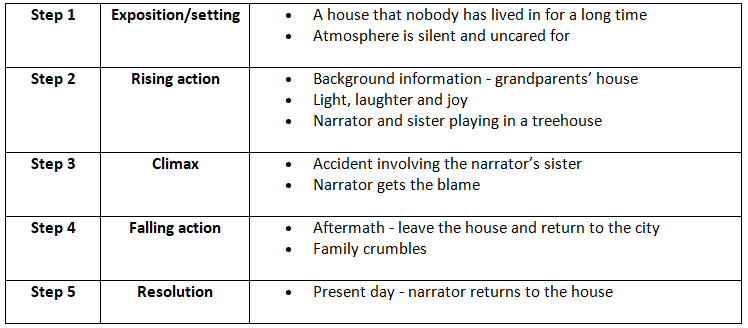
Narrative writing model answer
Outlined below is a model response showcasing the structuring and techniques for a top-quality answer to the given task: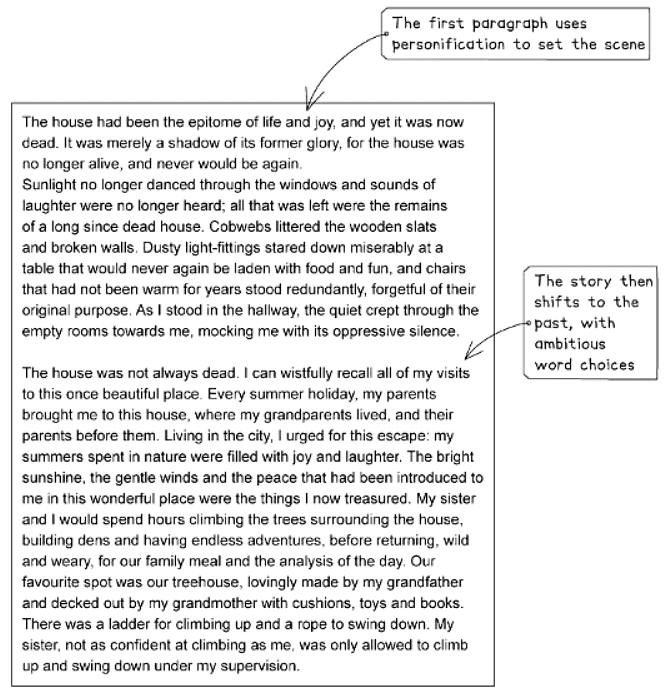
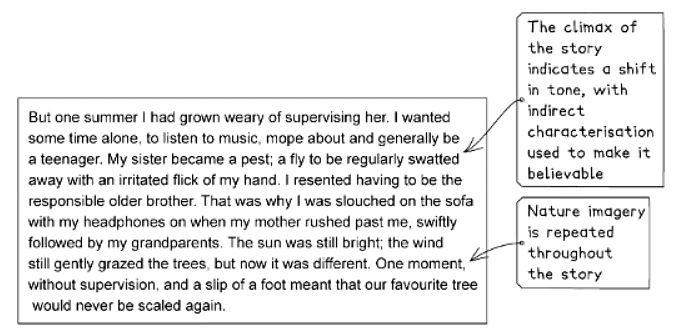
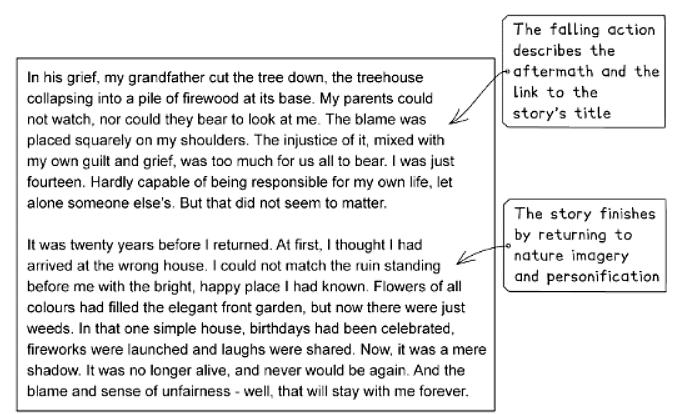
Unannotated model answer
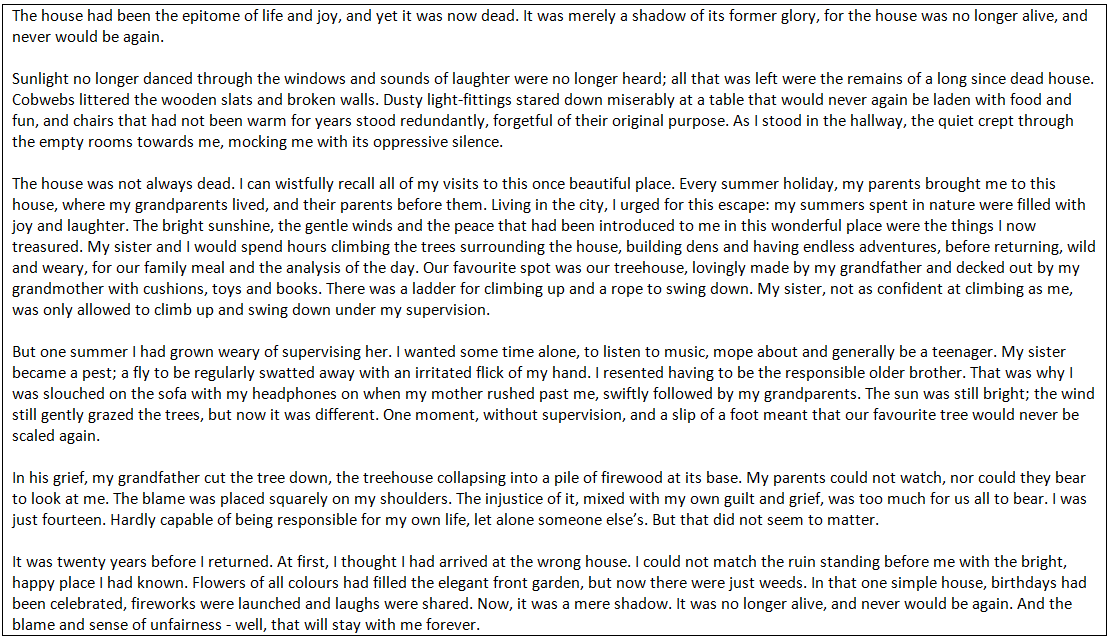
Commentary:
- Use of Personification: The initial part of the narrative employs personification as a literary device to vividly describe the setting.
- Transition to the Past: Subsequently, the story transitions to a historical context, incorporating impactful and daring vocabulary choices.
- Climactic Shift: The pinnacle of the story represents a significant change in mood, utilizing subtle characterizations to enhance believability.
- Nature Imagery: Throughout the narrative, natural elements and surroundings are consistently referenced, adding depth to the storytelling.
- Falling Action and Theme: The descending action narrates the consequences and directly relates to the central theme of the story, which revolves around the concept of "injustice."
- Conclusion with Nature Motifs: The tale concludes by revisiting nature-related imagery and employing personification to bring the narrative full circle.
Summary
- Remember to carefully plan the sequence and progression of your story to maintain a coherent "flow."
- Stick to a single setting and limit the number of main characters to no more than two.
- Ensure variation in the lengths of your sentences and paragraphs to keep the narrative engaging.
- Incorporate vivid imagery and literary devices to enhance the vividness of your story.
- Utilize indirect character development techniques to create authentic and believable characters.
- View your story as a cinematic scene, focusing on immersing readers through descriptive techniques rather than direct exposition.
- Emphasize technical accuracy in your writing to enhance credibility.
The document Demo Answer: Narrative Writing | English Language for GCSE/IGCSE - Class 10 is a part of the Class 10 Course English Language for GCSE/IGCSE.
All you need of Class 10 at this link: Class 10
|
16 videos|45 docs
|
FAQs on Demo Answer: Narrative Writing - English Language for GCSE/IGCSE - Class 10
| 1. How can I effectively plan my narrative writing? |  |
Ans. To effectively plan your narrative writing, start by brainstorming ideas, creating a clear outline of the plot, developing your characters, and considering the setting and themes you want to explore in your story.
| 2. What are the key elements of a successful narrative writing piece? |  |
Ans. The key elements of a successful narrative writing piece include a strong plot, well-developed characters, vivid descriptions, a clear setting, engaging dialogue, and a resolution that ties up loose ends.
| 3. How can I create a compelling opening for my narrative writing? |  |
Ans. To create a compelling opening for your narrative writing, consider starting with action, dialogue, a vivid description, or a thought-provoking question to immediately grab the reader's attention and draw them into your story.
| 4. How can I develop my characters effectively in narrative writing? |  |
Ans. To develop your characters effectively in narrative writing, focus on their motivations, desires, flaws, and growth throughout the story. Show their personalities through their actions, dialogue, and interactions with other characters.
| 5. What are some tips for improving the pacing of my narrative writing? |  |
Ans. To improve the pacing of your narrative writing, vary the length and structure of your sentences, use cliffhangers and suspenseful moments, and consider the overall flow of your story to keep readers engaged and eager to continue reading.
Related Searches


















